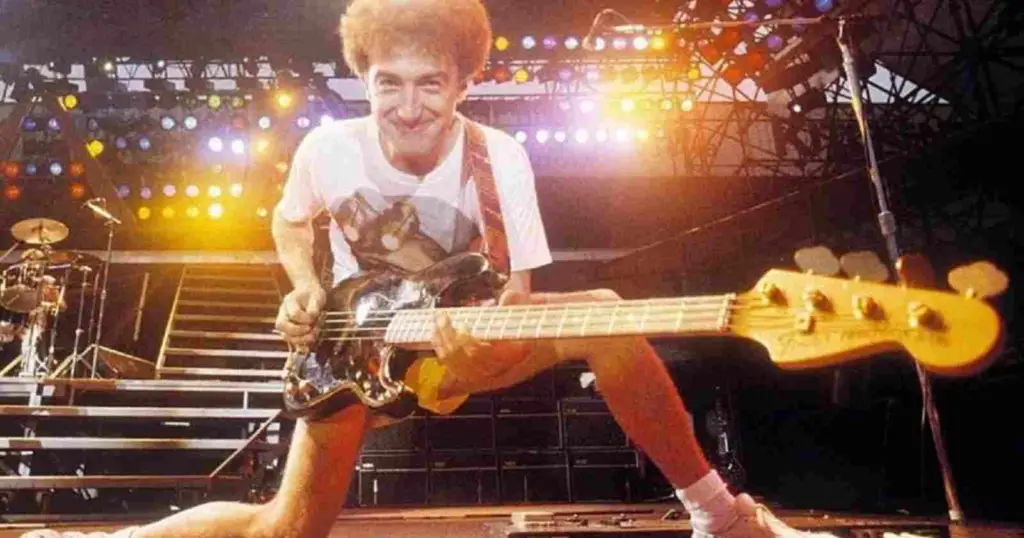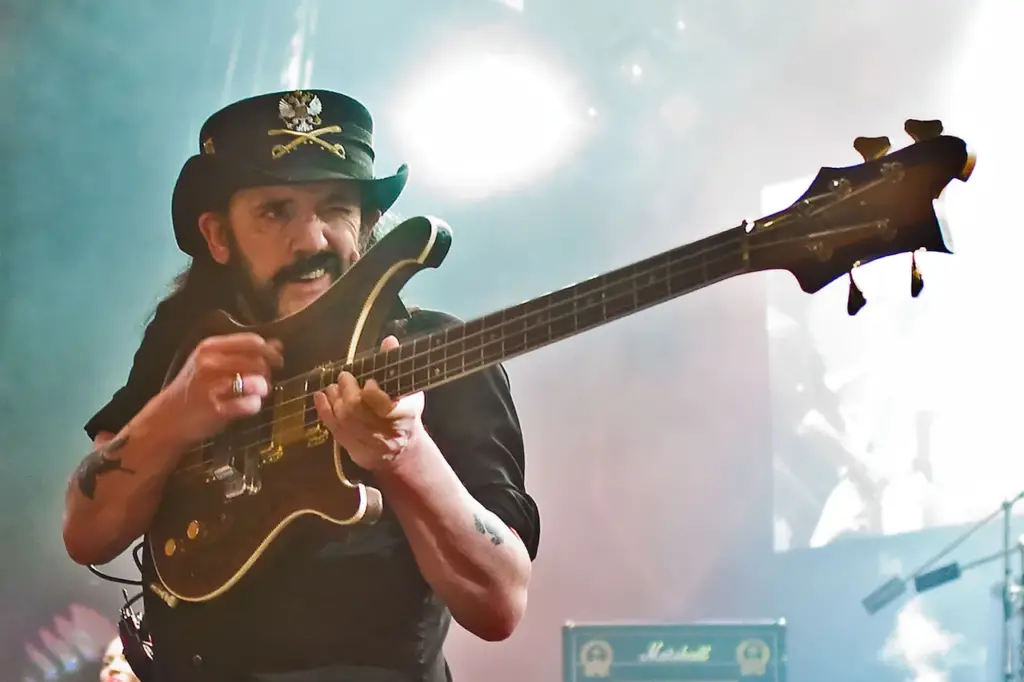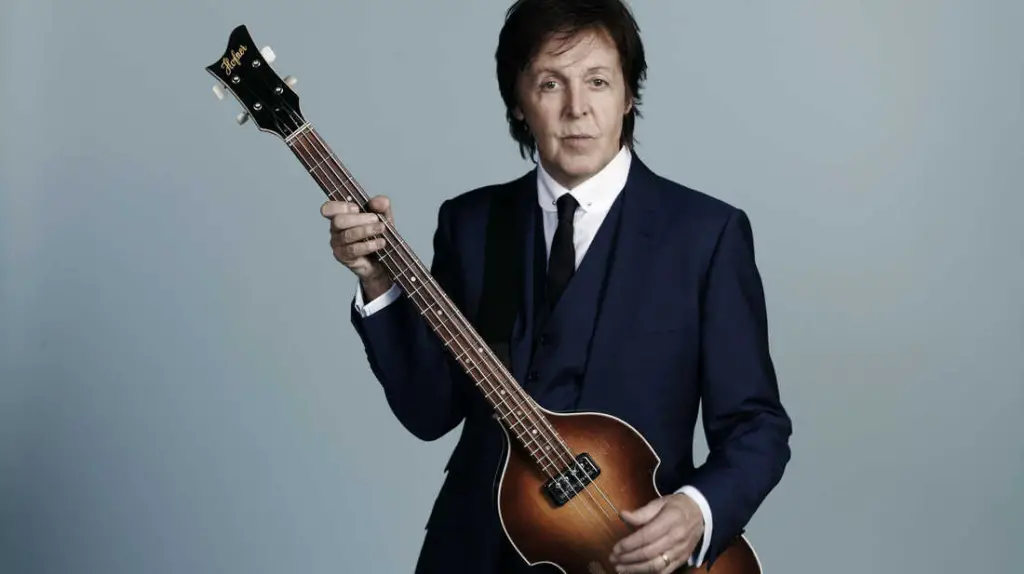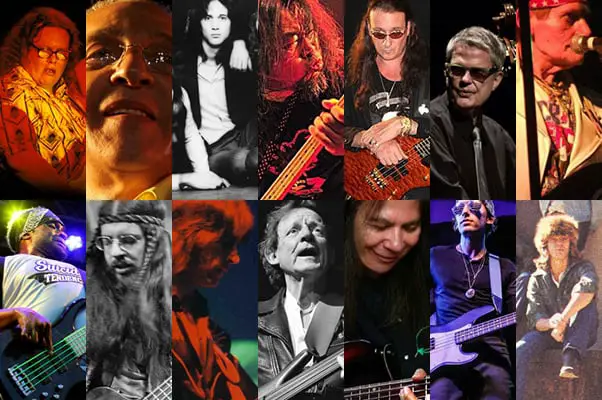The Best Classic Rock Bassists Of All Time Ranked
Classic rock is a US radio format which developed from the album-oriented rock (AOR) format in the early 1980s. In the United States, the classic rock format comprises rock music ranging generally from the mid-1960s through the mid 1990s, primarily focusing on commercially successful blues rock and hard rock popularized in the 1970s AOR format. The radio format became increasingly popular with the baby boomer demographic by the end of the 1990s. Although classic rock has mostly appealed to adult listeners, music associated with this format received more exposure with younger listeners with the presence of the Internet and digital downloading. Some classic rock stations also play a limited number of current releases which are stylistically consistent with the station’s sound, or by heritage acts which are still active and producing new music. Here are all of the best Classic Rock Bassists of all time ranked.
See more: The Best Female Guitarists Of All Time Ranked
See more: The Best Female Bassists Of All Time Ranked
14. John Deacon

“John Deacon is a retired English musician who is best-known as the bass guitarist in Queen. In addition to playing bass for this group, he also composed many of their hit songs. Some of these included ‘Another One Bites the Dust’, ‘I Want to Break Free’, ‘You’re My Best Friend’, and ‘Back Chat’. He also played a crucial role in the financial management of the group. After bandmate Freddie Mercury died in 1991, Deacon only played a few more times with Queen before retiring in 1997”
13. Roger Glover

“Roger David Glover is a Welsh bassist, songwriter, and record producer. He is best known as the member of the hard rock bands Deep Purple and Rainbow. As a member of Deep Purple, Glover was inducted into the Rock and Roll Hall of Fame in April 2016.”
12. Chris Hillman

“Christopher Hillman is an American musician. He was the original bassist of and one of the original members of the Byrds, which in 1965 included Roger McGuinn, Gene Clark, David Crosby and Michael Clarke”
11. Duff McKagan

“Prior to joining Guns N’ Roses, Duff McKagan had barely touched a bass. He was an ex-guitarist and ex-drummer who had come up in Seattle’s early-Eighties punk scene, and the combo of his background and his raw approach to playing gave Guns N’ Roses songs like “It’s So Easy” and “You Could Be Mine” a rough edge. To learn the instrument, McKagan binged on the bass lines of Prince (“I loved that R&B rhythm,” he once said), Zeppelin’s John Paul Jones, the Clash’s Paul Simonon, Motörhead’s Lemmy Kilmister, and, most surprising, Barry Adamson of the postpunk group Magazine.”
10. Lemmy

“The Rickenbacker bass, the black hat, the bottle of Jack Daniels, the mole, the legend. Few bassists have been the iconic face of rock in the way that Lemmy was. His playing with his speed-metal outfit Motör-head taught future generations of bass players that attitude is just as important as talent.”
9. Phil Lesh

“In the same way that the Grateful Dead reconfigured how a rock band should sound — looser and jammier, incorporating equal parts jazz and country — Phil Lesh made us hear the bass in a new way. The Dead’s founding and longtime bassist grew up on experimental and classical music and played trumpet and violin in high school. He only took up his signature instrument when he was asked to join the Warlocks, the first version of the Dead.”
8. Noel Redding

“Noel Redding was a member of the Jimi Hendrix Experience from its formation in 1966 until he left in 1969. He was hired in as a bass player, reportedly due in some part to his look (a huge afro and his trademark granny glasses), despite his real desire to continue as a guitarist. In addition to his work in the Experience, Redding formed and played guitar in Fat Mattress, who released two albums in the late ’60s and early ’70s, and was involved in Road and the Noel Redding Band”
7. Bill Wyman

“There must be hundreds of better bass players than me,” Bill Wyman told Rolling Stone in 1974. “I mean I could never play like Jack Bruce. If I was ambitious in that direction I’d practice, [but] I don’t.” But while he undersells his talent, his fellow Rolling Stones disagree. “Bill Wyman’s an incredible bass player,” Keith Richards once said. “I’m still always amazed by Bill’s tastefulness in his bass playing.… He’s a very sensitive musician.”
6. Jack Bruce

“Eric Clapton and Ginger Baker got much of the attention in Cream, but Jack Bruce gave the group the thrust to make them a true power trio. When Clapton would play his soaring blues licks and Baker explored jazzy new strata behind his drum kit, Bruce, also the group’s lead vocalist, kept the band together with heavy bass lines that always seemed to be moving.”
5. Roger Waters

“George Roger Waters is an English singer, songwriter, multi-instrumentalist, and composer. He is mostly known for being the secondary lead vocalist and bassist of Pink Floyd. Waters initially served as the bassist, but following the departure of singer-songwriter Syd Barrett in 1968, he also became their lyricist, co-lead vocalist and conceptual leader until his departure in 1983.
4. Paul McCartney

“Paul McCartney is widely considered one of the best-known musicians in the world as he was a member of the ‘Beatles’, which is one of the most successful bands of all-time. He is a singer, songwriter, multi-instrumentalist, and composer who was born in Liverpool, England, on June 18, 1942. His career in the music industry began in 1957 and he continues to perform to this day, despite now being in his mid-70s. He was a member of the ‘Beatles’ from the beginning of his career until they disbanded in 1970.”
3. John Paul Jones

“Although Led Zeppelin seemed to come out of nowhere, fully formed, in the late Sixties, both guitarist Jimmy Page and bassist-keyboardist John Paul Jones had years of session playing behind them. Drawing inspiration from Motown records and jazz bassists like Charles Mingus, Jones played on recordings by Donovan, Jeff Beck, and Dusty Springfield, among others, and he arranged the strings for the Rolling Stones’ “She’s a Rainbow.”
2. Geddy Lee

“Onstage with Rush, Geddy Lee was always a master multitasker, playing keyboards and foot-controlled synths while nailing daredevil vocal parts. But his bass playing, tough and sinewy yet beautifully nimble and accented with just the right amount of daredevil flash, is what’s made him a legend to fans of forward-thinking rock, and one of the key links between Sixties pioneers like Jack Bruce and John Entwistle and Nineties innovators like Les Claypool and Rage Against the Machine’s Tim Commerford”
1. John Entwistle

“Rock’s original lead bassist was also a highly influential cornerstone of the instrument, despite his unique style, having impacted Geddy Lee, Chris Squire, Billy Sheehan, and countless others. Among Entwistle’s trailblazing musical and sonic efforts as a founding member of the Who include the use of treble frequencies, the development of round-wound strings with Rotosound, technical innovations such as ‘typewriter’ tapping and strumming, and bi-amping, splitting his signal between overdriven high end and clean low end.”


One thought on “The Best Classic Rock Bassists Of All Time Ranked”
Comments are closed.